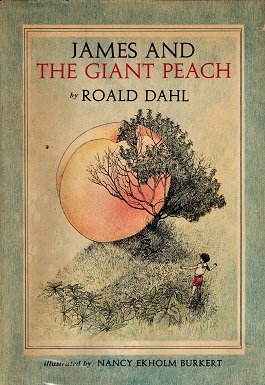Derek Walcott
Explore the timeline of Derek Walcott, the Nobel Prize-winning poet and playwright from Saint Lucia. Learn about his life, career, and major milestones from his birth in 1930 to his literary success and cultural impact across the globe.
Birth of Derek Walcott
Derek Alton Walcott was born on January 23, 1930, in Castries, Saint Lucia. He was raised in a bi-cultural environment influenced by both African and European traditions, which would later influence his literary work. Walcott's upbringing in the Caribbean played a significant role in his development as a poet and playwright, and his early exposure to literature inspired him to pursue a career in writing.
Publication of First Poetry Collection
In 1948, Derek Walcott self-published his first collection of poetry at the age of 18, titled '25 Poems'. This marked the beginning of his literary career. Despite the limited resources and audience in Saint Lucia at the time, Walcott was determined to make his voice heard. This first publication demonstrated his early talent and set the stage for his future works, as he continued to develop his distinctive poetic style blending Caribbean and classical themes.
Founding of the Trinidad Theatre Workshop
Derek Walcott founded the Trinidad Theatre Workshop in 1959. This theatre company became a crucial platform for the performance of new Caribbean drama and a training ground for actors and playwrights from the region. The Trinidad Theatre Workshop helped to foster a unique voice in Caribbean theatre and was instrumental in promoting regional plays that highlighted the cultural and social issues of the Caribbean. Walcott's involvement with the company lasted for many years, influencing his work in drama.
Publication of "In a Green Night: Poems 1948–1960"
In 1962, Walcott published 'In a Green Night: Poems 1948–1960', which marked his first significant publication outside the Caribbean. This collection introduced his work to a wider audience and established his reputation as a major poet. The poems in this collection reflect Walcott's themes of colonialism, exile, and the complexities of Caribbean identity, blending his personal experiences with historical and cultural commentary.
Publication of "Dream on Monkey Mountain"
In 1970, Derek Walcott's play "Dream on Monkey Mountain" was published and soon became one of his most celebrated works. The play explores themes of identity, colonialism, and transformation, set in a symbolic Caribbean landscape. It won the Obie Award for Best Foreign Play and solidified Walcott's status as a significant playwright. Through its complex characters and rich symbolism, "Dream on Monkey Mountain" continues to be studied and performed worldwide.
Publication of "The Star-Apple Kingdom"
Published in 1981, 'The Star-Apple Kingdom' is one of Derek Walcott's significant collections of poetry. This work reflects his mastery in blending folklore and mythology with contemporary Caribbean issues. The poems explore themes of time, place, and cultural identity, continuing Walcott's exploration of the postcolonial landscape. His rich imagery and intricate verse in 'The Star-Apple Kingdom' further established his prominence in the literary world.
Publication of "Omeros"
In 1990, Derek Walcott published 'Omeros', an epic poem widely regarded as his magnum opus. This ambitious work is a retelling of the Homeric epic in a Caribbean setting, weaving together Greek mythology, history, and the lives of modern Caribbean inhabitants. 'Omeros' received widespread acclaim for its lyrical beauty and structural complexity, and it played a crucial role in leading to Walcott being awarded the Nobel Prize in Literature.
Nobel Prize in Literature
On December 10, 1992, Derek Walcott was awarded the Nobel Prize in Literature. The Swedish Academy awarded him the prize for a poetic oeuvre of great luminosity, sustained by a historical vision, the outcome of a multicultural commitment. This prestigious recognition internationalized his reputation further and acknowledged his significant contributions to literature, particularly in exploring themes of Caribbean identity and postcolonialism.
Publication of "White Egrets"
'White Egrets', published in 2011, is one of Derek Walcott's later works that won the T.S. Eliot Prize. The collection reflects on themes such as aging, memory, and Caribbean landscapes. Walcott's ability to weave together personal reflection and broader social commentary is evident in his vivid and poignant imagery. 'White Egrets' was celebrated for its eloquence and depth, showcasing Walcott's enduring talent and wisdom as a poet nearing the end of his career.
Death of Derek Walcott
Derek Walcott passed away on March 17, 2017, at the age of 87 in Cap Estate, Saint Lucia. He left behind a rich legacy of poetry, plays, and essays that reflect his deep engagement with themes of identity, culture, and history. Walcott's work continues to be celebrated for its lyrical beauty and profound insights into the human condition, and his contributions have left a lasting impact on world literature.
Frequently asked questions about Derek Walcott
Discover commonly asked questions regarding Derek Walcott. If there are any questions we may have overlooked, please let us know.
What are some of Derek Walcott's major achievements?
When did Derek Walcott pass away?
When was Derek Walcott born?
What is 'Omeros' about?
Related timelines
More timelines connected to Derek Walcott







